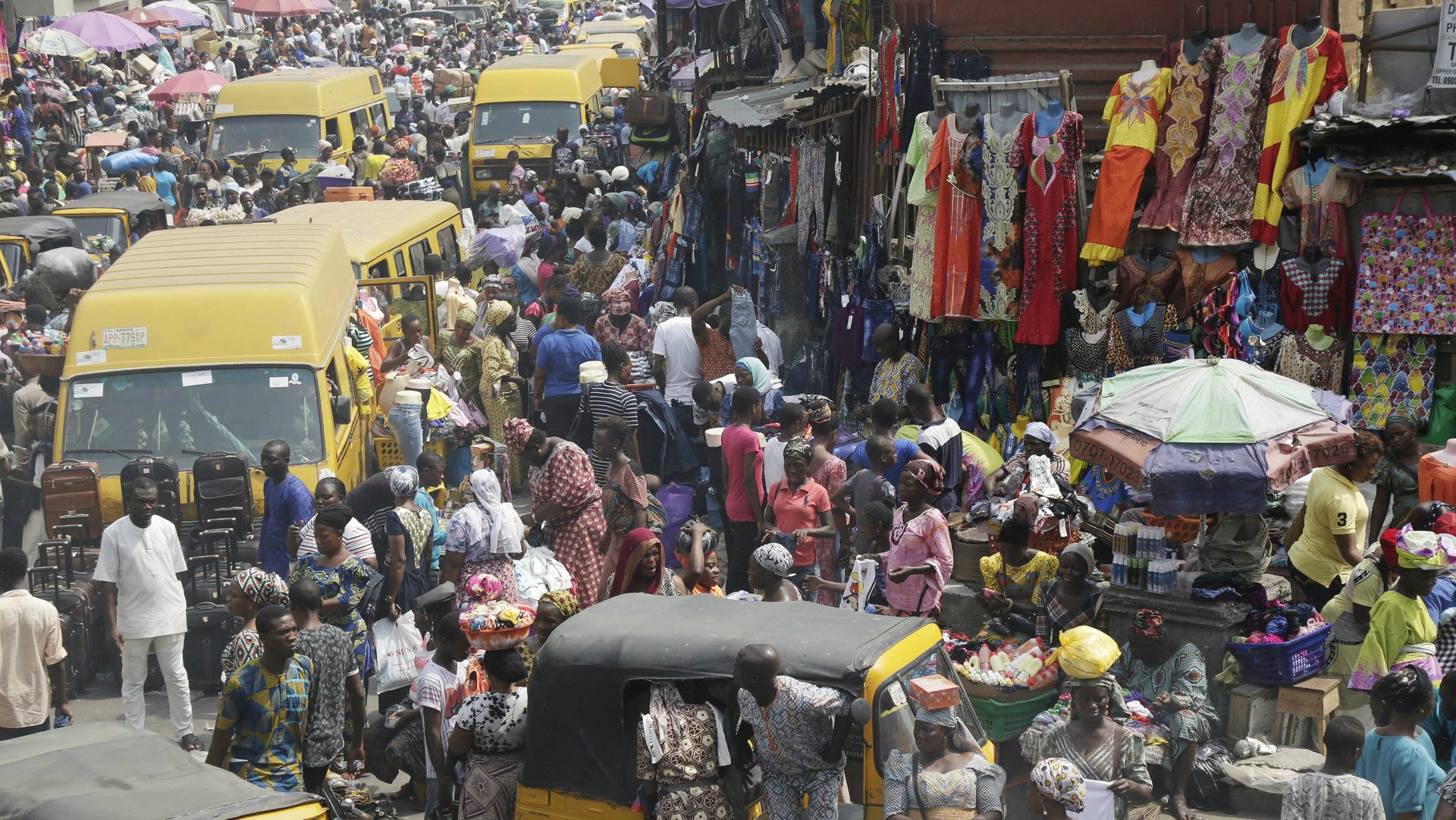Nigeria’s population problem is the result of poor policy implementation—and it’ll only get worse
On Jan. 1, Nigeria welcomed 20,210 babies and accounted for the third highest number on newborns on the first day of the new year behind only India and China. That statistic has proven yet another reminder of the population boom in Africa’s most populous country.


On Jan. 1, Nigeria welcomed 20,210 babies and accounted for the third highest number on newborns on the first day of the new year behind only India and China. That statistic has proven yet another reminder of the population boom in Africa’s most populous country.
Much of the current data suggests the population growth spurt isn’t slowing down anytime soon. A UN report last year projected that, by 2050, Nigeria will become the world’s third largest country by population and one of the six nations with a population of over 300 million. The country, which currently has a population of just under 200 million, will contribute a significant amount to the 1.3 billion people projected to be added to Africa’s current population in the same time frame.
Under some circumstances, a country’s population could be cited as a strength but when, like in Nigeria’s case, population growth outpaces public infrastructure and development by far, then it’s a huge red flag.
Policing the policy
So why is Nigeria’s population boom going unchecked? The short answer: a lack of political will and poor policy implementation.
Nigeria’s first population policy was put together in 1988 but it failed to deliver on its targets which included reducing the fertility rate, the rate of early marriages and the population growth rate. In 2005, the National Policy on Population for Sustainable Development (NPP), another population policy was launched, but like the one before it, NPP fell short of all its targets, according to a 2015 report.
Indeed, Nigeria’s population increased by nearly 50 million between 2005, when the policy was launched, and 2015, when the report was authored. Nigeria’s total fertility rate (average number of births per woman) dipped only slightly from 5.7 to 5.5 children per woman, notably higher than the target of 4.38 children per woman for 2015. Just as crucially, the modern contraceptive prevalence rate among married women increased to 9.8%—far less than the 30.2% policy target.
The report finds reasons for the policy’s failure included “limited political will” and “delayed or nonexistent release of funds.” But perhaps the most important reason was “a weak enabling environment, characterized by pervasive cultural/religious practices, gender norms, and poverty.” That reality is given further credence as the report says “large family sizes are the single most important driver of Nigeria’s population growth rate.” Gender norms such as preferences for male children and belief systems that mainly regard the number of children born in a family as a status symbol continue to hold sway and have rendered global family planning methods ineffective in parts of Nigeria. Low levels of literacy and education also mean that these beliefs and norms remain prevalent.
A ticking clock
Nigeria won’t have to wait till 2050 to grasp the pitfalls of its spiraling population and the lack of commensurate infrastructure and development as much of is already fairly obvious.
Nigeria’s university system is sorely lacking in capacity as between 2010 and 2015, of the 10 million applicants to Nigerian tertiary institutions, only 26% gained admission. Around 10. 5 million children are out-of-school—the largest number globally. For those fortunate enough to get through the educational system, unemployment remains a pressing concern. The latest data from Nigeria’s statistics bureau shows the unemployment rate has nearly doubled since the end of 2015.
Seeking proverbial greener pastures, desperate Nigerians are braving terrible odds and risking a life in slavery or being trapped in a sex trafficking ring to travel to Europe via the Sahara desert and the Mediterranean. In 2016, with 37,500 of the 180,000 total arrivals, Nigeria accounted for the most illegal migrant arrivals in Italy by sea—but many also drown in transit. Between 2014 and 2016, the number of Nigerian women arrivals in Italy increased almost ten-fold. But many also die trying to cross by sea.